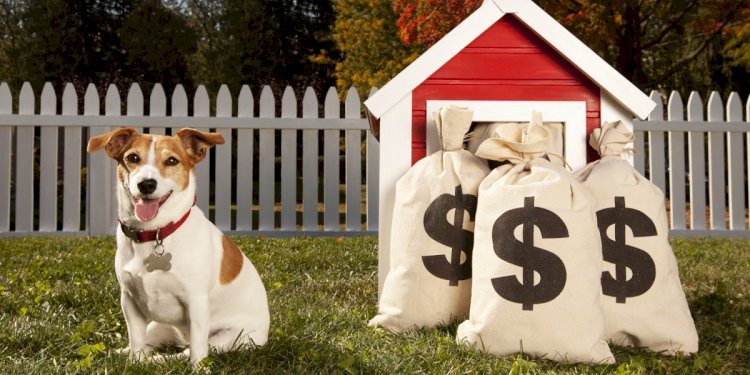Buying a Dog - Step Five: Costs and Health
Owning a dog is also a considerable financial commitment. The average care for one dog...

Owning a dog can be expensive
Owning a dog is also a considerable financial commitment. The average care for one dog, which includes food, supplies, and basic veterinary care, averages $800 - $1,000 a year. Emergency care can range from $250 to $5,000.
Grooming and Fur
Nails need to be clipped, fur needs to be brushed, and they need to be bathed. Professional dog grooming will cost you money and you'll need to do it every couple of months for a dog with long fur (or, learn to do it yourself).
And speaking of fur, it will be everywhere. It will be on your clothes, in your baby's mouth, and occasionally in your food. Lint rollers are nice, but you'll never achieve pre-dog levels again.
You also need to be mindful of allergies-are you allergic? Is anyone that's going to be around the dog allergic?
Be prepared to groom your dog
Groom your dog, making sure to ease into a grooming routine. Begin with shorter sessions, and gradually increase to the normal grooming session. Be sure that whoever is grooming the dog pets it frequently, and that your dog is rewarded in the end. Your dog's nails should not touch the ground, and your dog should be brushed regularly. This will prevent tangles and reduce the risk of skin irritation. Your vet can help you plan an appropriate grooming schedule for your particular dog, depending on breed and hair type.
Every breed has different grooming needs
Wrinkly dogs like Bulldogs have different grooming requirements than fluffy dogs, like Samoyeds. Figure out how much time you have to devote to your dog's grooming and do a little research before bringing a pooch of a certain breed home.
Get your pup used to having her feet touched because you'll have to trim her nails
If her nails get too long, they can break, which causes a lot of pain and can result in infection. Take it slow and be patient. Your vet and groomer will also be able to do this if you're nervous about doing it yourself.
Your dog's nails should "just about touch the ground".
If her nails are getting snagged or clacking against the floor, they should be trimmed.
It's recommended to bathe your dog at least every three months and possibly more often if he spends a lot of time romping around outdoors.
Keep your dog's eyes gunk-free by checking them and gently swabbing with a cotton ball
If your pup has discharge, redness, or constant runny eyes, he may have an infection, so keep an "eye" on him!
Those ears need to stay clean, too!
The curvy design of a dog's inner ear lends itself to the development of "parasites, bacteria and yeast". Floppy-eared breeds in particular are prone to these kinds of ear infections. Your pup's grooming and maintenance schedule should include regular ear checks, but don't clean his ears so often that it causes irritation! Also note that frequent bathing and swimming can cause irritation as well, and never, ever insert anything into your dog's ear canal.
You'll be a dentist
Brush your dog's teeth in order to prevent dental diseases. Three to five times a week is recommended, and your vet can give you a lesson as well as recommend an appropriate toothbrush and paste.
Find a good vet for your dog
Get your dog vaccinated and spayed or neutered as soon as possible. Oh, and take your dog to the vet for its routine check-ups. Your dog will thank you for it and live a much better (and longer) life.
Find a good vet before you bring your pup home. Online resources can help you find vets in your area.
But be sure to factor in extra costs when bringing home a pup.
Emergency vet visits can be costly, so consider that before you bring home your buddy.
One of the first steps in bringing your dog home is scheduling an appointment to make sure your pup has the proper vaccinations.
Required vaccinations vary from state to state, so check with your vet to make sure your pup is healthy and up to date!
Health insurance is a must. Consult your veterinarian as to your best options.
Remember to Neuter or Spay
Unless you intend to seriously breed dogs, you'll need to neuter or spay your pet. Not only do you avoid surprise puppies, possible health issues but it also reduces aggressive and bizarre behaviours (by yours as well as other dogs).
SOURCES
[1] "Buzz Feed Animals"
[2] "American Kennel Club"
[3] "Bustle"
[4] "Pet Md"
[5] "Dog Conspiracy"






















